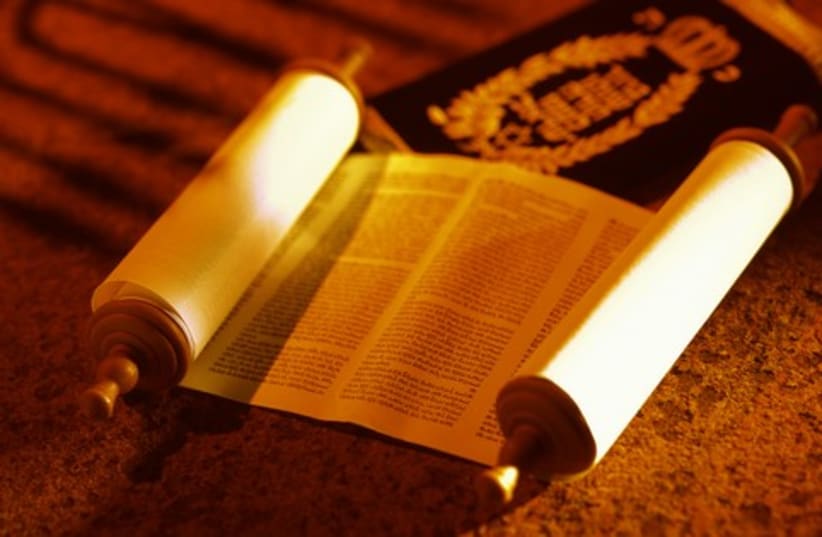ARTICLE AD BOX
The ancient teaching that our biblical forefathers never truly died finds new meaning in the enduring legacies of Israel's fallen heroes.
By KENNETH BRANDER JANUARY 10, 2025 11:40 Updated: JANUARY 10, 2025 11:57 Torah scroll 521
(photo credit: Stockbyte)
Torah scroll 521
(photo credit: Stockbyte)
The haftarah (reading from the Prophets) of this week’s Torah portion, Vayechi (“And he lived”), invites us to compare and contrast the last will and testament of King David with that of our forefather Jacob.
In this week’s Torah reading, Yaakov delivers his final messages to each of his children before departing from this world. He addresses their respective virtues and vices, offering guidance for the rest of their individual lives and for the legacy that each tribe is to contribute to the spiritual makeup of the Jewish people.
King David, on the other hand, addresses only one of his children in our haftarah, issuing a final set of directives to Solomon, his son and heir. Among other things, Solomon is instructed to tend to his dying father’s unfinished business with various individuals. These contrasting approaches to legacy reveal two distinct paths of leadership and family dynamics, each carrying profound implications for future generations.
As I write this column, after attending the funeral of First Sgt. Netanel Pessach, the 20th alumnus of the Ohr Torah Stone network to fall in battle, these ancient episodes take on a deeper and more personal meaning. During Netanel’s funeral, with the portion of Vayechi in mind, I found myself reflecting on a commonality between Jacob and David: In the Gemara in Taanit (5b), Rav Yitzchak surprisingly declares that Yaakov never died. By the same token, in Rosh Hashana (25a), Rebbi (Yehuda HaNasi, aka Judah the Prince) introduces the phrase, still present in our liturgy and the origin of the popular song, “David, melech Yisrael, hai, hai vekayam,” announcing that “David, King of Israel, lives, lives, and exists.” In what sense can truth be found in these two profound statements?
Both Rav Yitzchak and Rebbi are clearly speaking not of the physical personalities of Jacob and David, but of what each represents.
Legacies and dynasties
The legacy of Yaakov, the dynasty of David, and the influence of those two individuals on our nation, continue to inspire us as we identify with them, and this is what lives on.
In a manner both moving and tragic, the same is true of those fallen in battle. Think of Tzvi Marantz z”l, a graduate of our Neveh Shmuel High School, who had a vision of distributing tzedaka boxes for people to set aside money not for an organization but to be passed on directly to families in need of help and support. Today, in his honor, a mission is underway to distribute a million such boxes, as a continuation of his legacy.
Or Yehonatan Samo z”l, another fallen Neveh Shmuel graduate who left a note clarifying that in the event he were to be killed, he wished to donate his organs to the greatest extent possible – and today, seven people are able to continue to live their lives, made possible by Yehonatan’s commitment to kindness.
The same holds true for Netanel, whose mother Revital spoke at the funeral of his being an ish hessed, a person of unbounded kindness, asking attendees to follow in his path by dedicating five minutes a day to reconnecting with those with whom we have lost touch – or those whom we have ignored.
Just like Jacob and David, these young men and so many others live on through their lasting legacies, the teachings they have left us, and the acts of kindness they modeled for us. When we embrace their virtues and transform their memory into action, we ensure that their light continues to illuminate our path forward and at least partially, to live on through us.
Stay updated with the latest news!
Subscribe to The Jerusalem Post Newsletter
The writer, a rabbi, is president and rosh hayeshiva of Ohr Torah Stone. If you wish to have a tzedaka box for needy families delivered to your home, email him at roshmosdot@ots.org.il

 5 hours ago
5
5 hours ago
5








 English (US) ·
English (US) ·